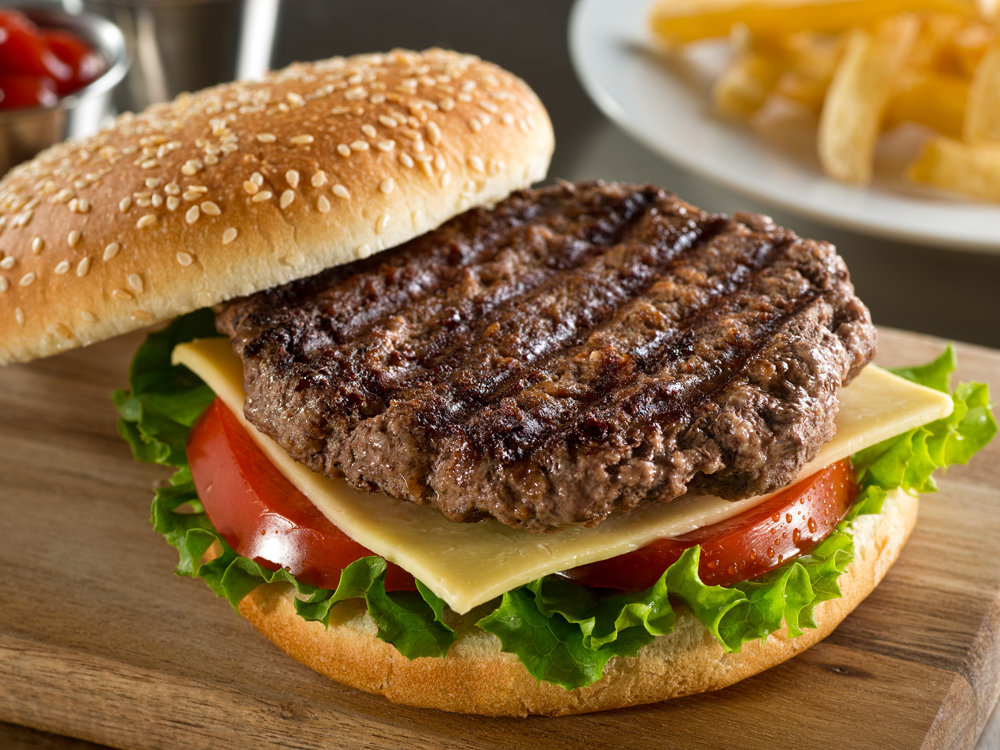Carbon-Tax Killjoys Want to Tax Our Hamburgers Now But Is Anyone Really Surprised?

If lately it seems to you that everything that makes life a pleasure is a target for getting slapped with a carbon tax … well, you’d be right
by Peter Shawn Taylor – Financial Post
The next serving of happiness to suffer could be those juicy grilled beef patties sizzling on your barbecue this summer. Tofu burgers, anyone?
Demands to tax meat — and in particular beef — to fight climate change is a topic of great interest these days. In the past few months, writers at The Atlantic, The New York Times, The Guardian, The South China Morning Post and a host of other media outlets have all been pushing the need to make your next cheeseburger or T-bone steak far more expensive for the sake of the environment.
“Are burps and flatulence from beef cattle really problems that require a carbon tax?”
And it’s not just pundits. A report released last December by the British-based investment advisory group FAIRR said, “It is highly probable that over the medium to long term some form of taxation on meat products will be implemented,” and drew comparisons between a possible beef tax and decades of tobacco taxation. A French academic study published this year recommends a 41-per-cent tax on beef specifically to fight climate change. An article from Canada’s EcoFiscal Commission similarly suggested that tax on beef 40 or 50 cent per kilogram. “Making the price of beef reflect its environmental cost is sensible ecofiscal policy,” it reports.
Proponents of meat taxes are fond of telling us that a third of all greenhouse gas emissions worldwide are a result of agricultural production, with the greatest share coming from cattle. In Canada, for example, nearly half the agricultural sector’s total emissions are due to cows, mostly as a result of methane gas expelled from either end of the animal’s digestive tract. But are burps and flatulence from beef cattle really problems that require a carbon tax?
Every carbon-dioxide-tax proposal involves substantial trade-offs and losses. The cost of reducing emissions from cars, for example, is higher taxes on gas; greening the electricity grid means new levies on your hydro bill. Whatever the effect on the environment, however, these measures leave families unambiguously worse off. And nowhere are the stakes as high as when food is the target. Putting a big tax on what we eat will inevitably make everyone poorer or hungrier. In some parts of the world, food taxes can be life-threatening.
The ethical quandaries of this latest carbon-tax proposal are starkly displayed in a 2016 study by the Oxford Martin Programme on the Future of Food at Oxford University in England. The researchers calculated the food-tax rates necessary to reduce global greenhouse gas emissions to match the obligations of the Paris climate accord. Beef, as the biggest culprit, is saddled with the highest tax rate of 40 per cent. Milk and dairy get a 21-per-cent tax. Poultry: an eight per cent tax. Eggs: five per cent. Even cooking oil would require a 25-per-cent tax to pay for its supposed environmental sins.
Imposing a worldwide CO2-tax regime on food would have dramatic and varied impacts. In wealthy countries, the researchers figure making food more expensive would complement the current campaigns against rising levels of obesity. “Levying greenhouse gas taxes on food commodities could … be a health-promoting climate policy in high-income countries,” they claim. But in poor countries, as the authors show, it would be health destroying.
Under the Oxford plan, deaths from malnourishment would increase in poverty-stricken countries such as Bangladesh, Ethiopia, Nepal and Myanmar. Yet this is a trade-off they seem prepared to accept. “We found that the health benefits from tax-related reductions in obesity could outweigh the health losses from increased numbers of underweight people in three-quarters of all regions,” the report says, chillingly.
A global green tax on food presents a horrifying moral dilemma. It also threatens to undo much of the world’s remarkable climb out of poverty and hunger in recent decades. Between 1990 and 2009, per capita world consumption of meat rose by 25 per cent, with much of that increase coming in developing countries where residents were able to add animal protein to their diet thanks to rising income. Choking off their access to meat through tax hikes would cruelly deny these people and their families the ability to improve their own health and lives, and seems like the worst kind of Western environmental colonialism. (Claims from meat-tax advocates that everyone can simply eat bugs for protein is just crass — and gross).
In Canada, a carbon tax on beef might not kill anyone outright, but it would certainly make everyone poorer and less happy. But beyond the outrageous imposition of government diktat on individual food choices, the entire concept of a meat tax does a grave disservice to the Canadian agricultural sector. While nearly a third of total greenhouse gas emissions may be due to food production globally, here in Canada that figure is a mere eight per cent. Meanwhile, since 1981, emissions specifically traceable to beef production have fallen by 15 per cent due to substantial improvements in feeding, care and land use. Our meat is better for the environment than meat from almost any other place on earth. A kilogram of beef from Brazil, Argentina or Kenya, for example, is responsible for nearly twice the carbon emissions as a kilogram of beef from Alberta. Forget taxing it. Let’s feed the world with Canadian beef.
Peter Shawn Taylor is a journalist, policy research analyst and contributing writer to Canadians for Affordable Energy.












